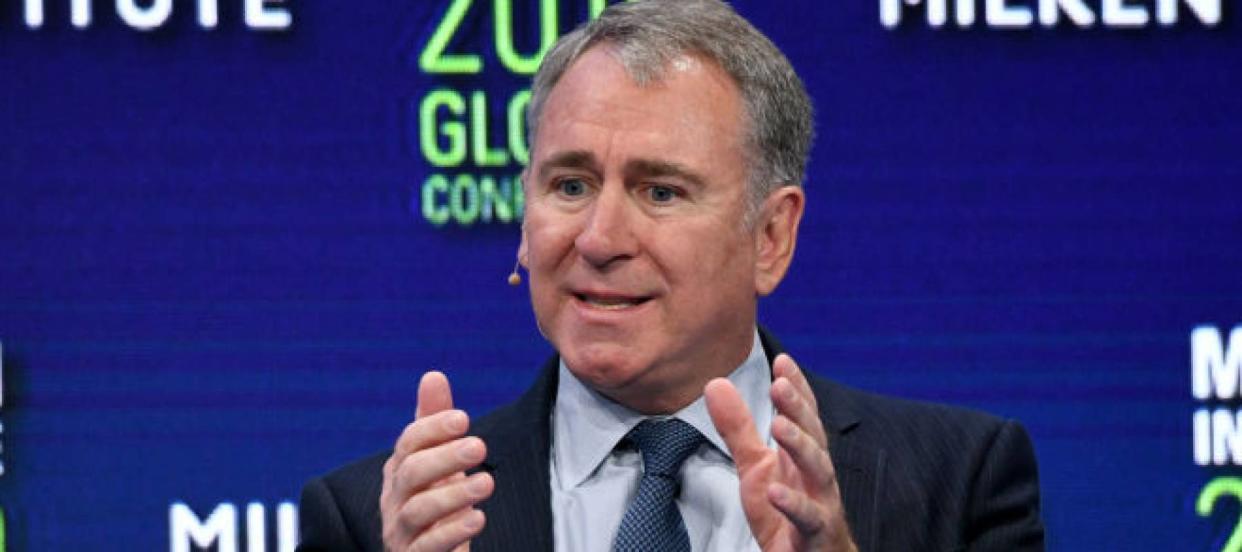‘Stop borrowing at the expense of future generations’: Hedge fund tycoon Ken Griffin issues dire warning about US public debt. Is there any light on the horizon?

Hedge fund tycoon Ken Griffin has slammed the “irresponsible” U.S. government for letting the national debt balloon to $34.6 trillion and counting.
In his 2023 year-end letter to investors, the Citadel boss stated: “The surging U.S. public debt is a growing concern that cannot be overlooked.”
Don't miss
Commercial real estate has beaten the stock market for 25 years — but only the super rich could buy in. Here's how even ordinary investors can become the landlord of Walmart, Whole Foods or Kroger
Cost-of-living in America is still out of control — use these 3 'real assets' to protect your wealth today, no matter what the US Fed does or says
Car insurance rates have spiked in the US to a stunning $2,150/year — but you can be smarter than that. Here's how you can save yourself as much as $820 annually in minutes (it's 100% free)
Total U.S. debt has more than doubled 2013 and is up nearly $3 trillion since the government suspended the debt ceiling in June 2023 — averting what would have been a first-ever default with just two days to spare.
The country’s money woes have become one of the most prominent political issues in the build up to the presidential election in November — and influential figures like Griffin haven’t been shy about sharing their two cents on the matter.
“We must stop borrowing at the expense of future generations,” wrote Griffin, who is worth a cool $35 billion, according to Forbes.
“The Western world urgently needs a significant increase in productivity growth as the burden of rising government debt and entitlement spending strains almost every major economy.”
US debt mountain
America's ongoing debt disaster is the result of a mismatch between federal spending and revenues.
Griffin cited Congressional Budget Office data, which revealed that the U.S. government incurred a total deficit that was 6.2% of gross domestic product (GDP) in 2023. They also spent 2.4% of GDP on national debt interest payments alone.
“If current laws governing taxes and spending generally remained unchanged, the federal budget deficit would increase significantly in relation to gross domestic product over the next 30 years,” the CBO projects. This could have significant economic and financial consequences.
The CBO explains: “Among its other effects, it would slow economic growth, drive up interest payments to foreign holders of U.S. debt, heighten the risk of a fiscal crisis, increase the likelihood of other adverse outcomes, and make the nation’s fiscal position more vulnerable to an increase in interest rates.”
One area of government spending that Griffin highlighted as a major strain on the U.S. economy is entitlements — like Social Security, Medicare, Medicaid, Unemployment Insurance and other social welfare programs.
Social Security currently accounts for 22% of government spending, according to U.S. Treasury data. It’s the largest category of federal spending, along with health care — and it has become a major battleground, with Republican politicians constantly calling for cuts.
Read more: These 5 magic money moves will boost you up America's net worth ladder in 2024 — and you can complete each step within minutes. Here's how
Clouds clearing for consumers
Griffin described 2023 as a “tumultuous year for investors and central bankers” — one that featured extreme mixed messages on the economic front.
“In the United States, for example, the central bank fought against inflation, while investors navigated erratic data that alternated between signaling higher inflation, a potential soft landing, or a recession,” he wrote in his letter to investors.
However, the money maestro does see some light on the horizon. Looking ahead, Griffin said he expects the economic landscape in the U.S. to remain “challenging” in the medium-term but to slowly move to a “more favorable climate for fixed-income markets as inflation eases.”
He also said the nation’s “economic growth is likely to be modest” through 2024 as the central bank continues its fight to bring down inflation.
As the Federal Reserve slowly gains more control over the economy, Griffin said “consumers should benefit from an increase in real income due to declining inflation and continued wage growth.”
What to read next
Jeff Bezos and Oprah Winfrey invest in this asset to keep their wealth safe — you may want to do the same in 2024
Rich young Americans have lost confidence in the stock market — and are betting on these 3 assets instead. Get in now for strong long-term tailwinds
Jeff Bezos told his siblings to invest $10K in his startup called Amazon, and now their stake is worth over $1B — 3 ways to get rich without having to gamble on risky public stocks
This article provides information only and should not be construed as advice. It is provided without warranty of any kind.
